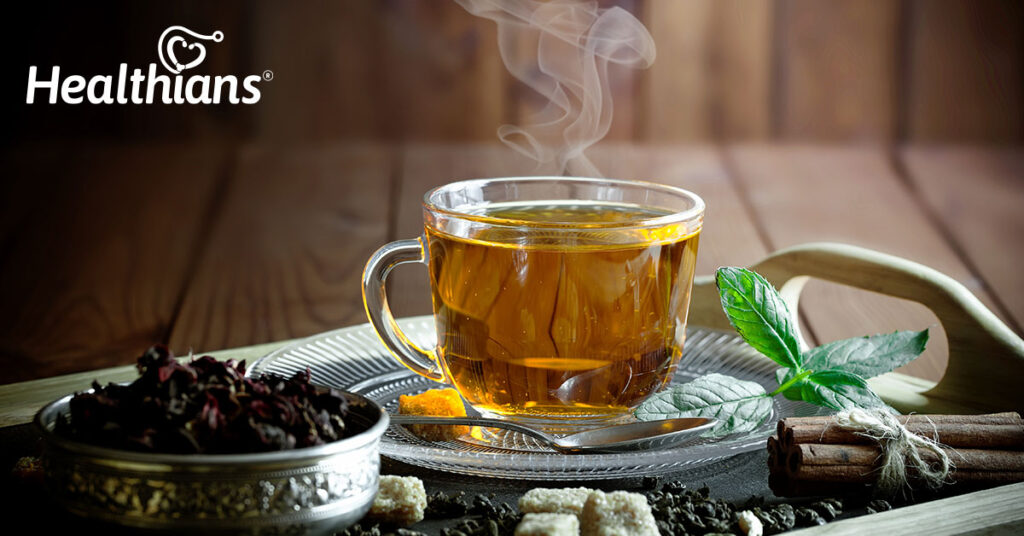Introduction
A great variety of spices, each with its own unique flavour and aroma and grown in various climates, are available in India. Indian cuisine would not exist as it does now without all of the spices we frequently utilise in our everyday dishes. Did you know Spices for Good Health? Let’s read in detail.
In reality, spices are used therapeutically in a variety of home remedies other than food. There is no denying that spices play a significant role in daily living, whether it be in a hot glass of milk with some black pepper and turmeric or just chewing on a clove to relieve oneself of a tooth ache. Try drinking a hot glass of milk spiced with black pepper and turmeric to relieve your sore throat.
Numerous spices include advantageous antibacterial properties that enhance their therapeutic advantages and promote disease resistance.
There are few things better than gathering with loved ones on a chilly winter night, complete with homemade chai. When you get home from a leaf-crunching walk in the woods and want to cuddle up, these mixes are perfect since the winter spices in them produce warm, happy feelings of bliss. The best thing is that you may use them whenever you need a pick-me-up throughout the year!
A natural and healthy approach to staying warm throughout the cold is by consuming spices in your meals and drinks.
Here is a list of winter spices 7 wonderful spices for good health and strength during winter

7 spices for good health during winter
Turmeric
This spice is used in all Indian recipes for a good reason. Turmeric’s main compound, curcumin, makes it a potent anti-inflammatory, anti-fungal, and antioxidant component. It eases arthritis pain, guards against cancer, and improves digestion. Additionally, it lessens bloating.
Turmeric will make you feel better, it possibly increases serotonin in the brain. Additionally, it can address more day-to-day health concerns, as the main ingredient in turmeric, curcumin, is a strong antioxidant.
Ginger
One of the many reasons ginger is so much loved by us is because it has such versatile advantages. It works well in both sweet and savoury recipes and can be warm yet calming.
There are many variants of ginger like fresh, grounded, pickled, and crystallised. You can add some ginger to soups and wintertime kadhas for better results in cough and cold Tea, ginger beer, and dry ginger ale are a few examples of beverages that use ginger. The power of ginger to relieve nausea and digestive problems is widely appreciated by health experts.
Black pepper
Black pepper has a strong aroma that makes it a natural cough and cold remedy. It is rich in minerals, including vitamin C, flavonoids, antioxidants, and antibacterial properties. A cup of pepper tea in the morning or pepper with honey is the best traditional remedy for avoiding or treating wintertime chills. It also prevents skin dryness and keeps your skin supple in the winter if consumed with hot water.
Cloves
There are many more advantages to utilising cloves in addition to their well-known ability to treat problems with your teeth and gums. Due to its antiviral, anti-inflammatory, and antioxidant properties, cloves are beneficial for treating fevers, colds, and coughs as well as stiff winter joints. Also known to be potent expectorants, cloves aid in liquifying mucus in the throat and facilitate coughing up that mucus.
Cardamom
Indian cuisine frequently uses cardamom, an indigenous spice, in curries, desserts, and even tea. Making a cup of warming milk tea with cardamom, saffron, tea leaves, and sugar in winter is the best thing. It adds a warming flavour to steamed or boiled rice and may significantly improve the taste and texture of the dish.
Tea masala
What are the components required to make a delectable masala chai? We’re not discussing tea, milk, or sugar; rather, we’re discussing the masalas, the unnoticed ingredients. Masala chai may help shield your body from the cold throughout the winter. Additionally, masala tea might relieve coughs and colds.
Final thoughts
Including spices in your daily diet during the chilly months may make you feel warm not only psychologically but also physically. Therefore, we advise including these robust spices in your wintertime cooking. This winter, attempt to find the balance that makes you feel cosy and at ease in the chilly weather.
Simply add these spices to your food to enjoy the flavour and a strengthened immune system. Spices are recognised for their therapeutic benefits. The above list of spices can help you stay healthy this winter. Choose the organic spices instead of conventional or inorganic ones, which might be harmful to you because of their high chemical and pesticide content.
FAQ (Frequently Asked Questions)
Q. Which Indian spices are best for winter?
Turmeric, cloves, black pepper, cardamom and cloves are some of the best winter spices.
Q. Is eating spices everyday healthy?
Yes, eating spices everyday is healthy. It helps in improving your gut microbiome, possibly lowering your blood pressure, improving good cholesterol levels, and even revving up your metabolism.
Q. Do dry spices have health benefits?
Yes, dry spices have health benefits. Whether you use spices fresh or dried, you’ll still get beneficial compounds like antioxidants, antiviral properties and also improves digestion.




